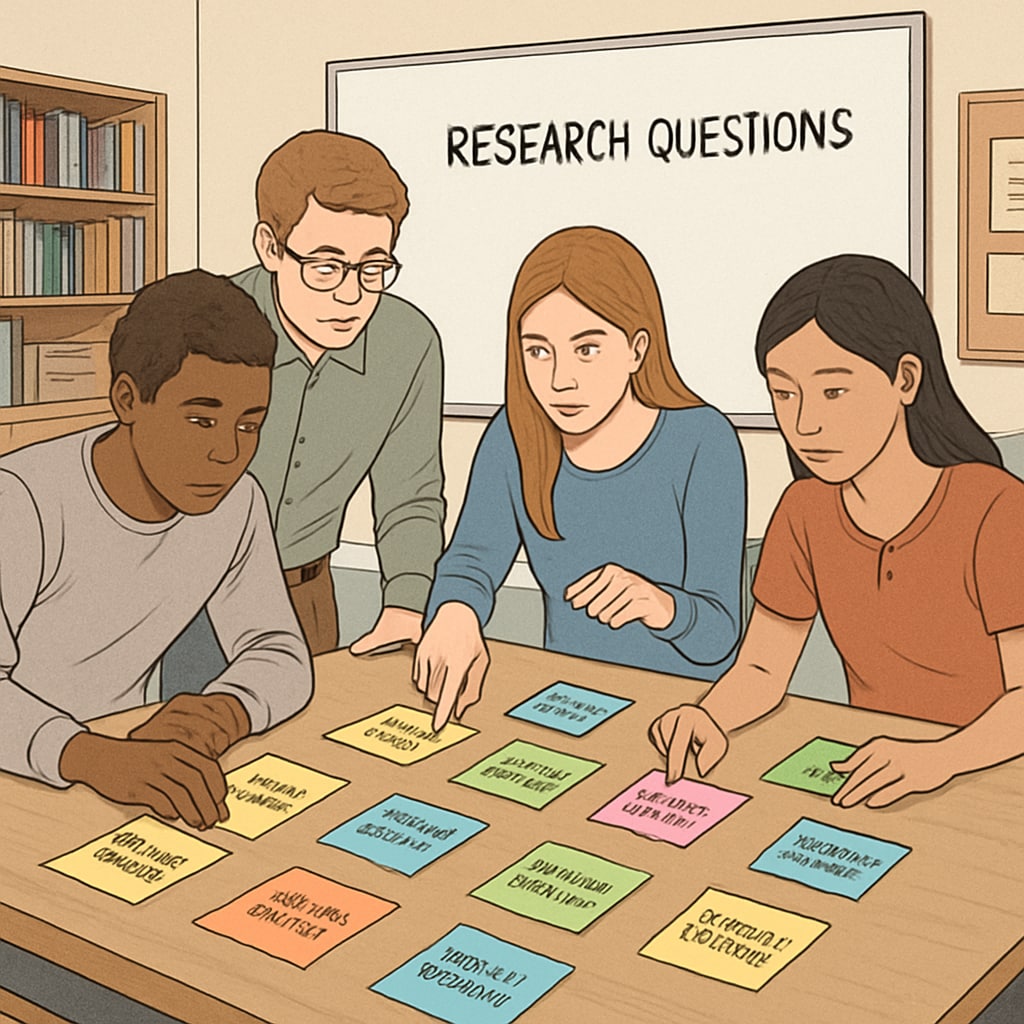Formulating research questions is a critical skill for K12 students, as it fosters their ability to think critically, explore topics independently, and engage deeply with the learning process. However, the process can often be daunting for young learners. Educators play a vital role in guiding students to develop structured and meaningful research questions. In this article, we will explore methods to help students formulate effective research questions, provide examples of practical frameworks, and discuss the long-term benefits of mastering this skill.
Why Research Question Formulation Matters
Research question formulation is the foundation of inquiry-based learning. It allows students to define the scope of their investigations and directs their efforts towards meaningful exploration. For example, a well-crafted research question encourages students to go beyond surface-level facts and delve into analysis and synthesis. As a result, it helps them develop critical thinking skills, a hallmark of 21st-century education. Additionally, the ability to design research questions empowers students to take ownership of their learning, increasing engagement and motivation.

Steps to Guide K12 Students in Question Formulation
Helping students craft effective research questions requires structured guidance and clear steps. Below are key strategies educators can use:
- Start with curiosity: Encourage students to identify topics they are genuinely interested in. For instance, ask them to brainstorm areas they find fascinating or problems they wish to solve.
- Teach the characteristics of a good research question: Explain that good questions are clear, focused, and open-ended. Avoid questions that are too broad or can be answered with a simple “yes” or “no.”
- Use scaffolding techniques: Provide prompts or templates, such as “How does [X] impact [Y]?” or “What are the factors that contribute to [Z]?” These frameworks help students structure their inquiry.
- Encourage peer discussion: Allow students to collaborate and refine their questions through group brainstorming sessions. Sometimes, feedback can help them narrow or reframe their ideas.
- Provide real-world examples: Show students examples of research questions from various disciplines to illustrate how professionals approach inquiry.
By following these steps, educators can create a supportive environment where students feel confident in their ability to design meaningful research questions.
Examples of Structured Frameworks
Structured frameworks are essential tools for guiding students in formulating research questions. Below are two popular approaches:
- Question Formulation Technique (QFT): Developed by the Right Question Institute, QFT involves generating, improving, and prioritizing questions. Students brainstorm a list of questions, evaluate their quality, and select the most effective ones for their research.
- Bloom’s Taxonomy: Use Bloom’s hierarchy of cognitive skills (remembering, understanding, applying, analyzing, evaluating, and creating) to help students design questions at higher cognitive levels. For example, instead of asking “What is climate change?” students might ask “How does climate change affect ecosystems in urban areas?”

Challenges and Solutions in Teaching Research Skills
While research question formulation is valuable, educators may encounter challenges in implementing it effectively. Common obstacles include students struggling with abstract thinking, a lack of prior knowledge on topics, or difficulty focusing on specific aspects of a subject. Here are some solutions:
- Provide background knowledge: Offer preliminary resources or discussions to build foundational understanding before students begin crafting their questions.
- Break down the process: Use step-by-step activities to simplify question formulation into manageable stages.
- Celebrate small successes: Acknowledge students’ efforts and progress to maintain their confidence and motivation.
As educators address these challenges, they create a more inclusive and supportive environment for developing research skills.
The Long-Term Benefits of Mastering Research Question Formulation
Teaching students to formulate research questions has lasting benefits. Beyond academic success, this skill equips them for real-world problem-solving and decision-making. For instance, the ability to ask insightful questions is invaluable in careers such as science, journalism, and business. Moreover, it nurtures lifelong learning, as students become adept at exploring topics independently and critically assessing information.
In conclusion, empowering K12 students with the ability to formulate effective research questions is a cornerstone of modern education. Through structured guidance, practice, and encouragement, educators can help students unlock their potential as independent thinkers and active learners.
Readability guidance: Use concise paragraphs and lists to summarize key points. Incorporate examples and frameworks to make concepts relatable. Ensure transitions between sections are smooth for a cohesive reading experience.


